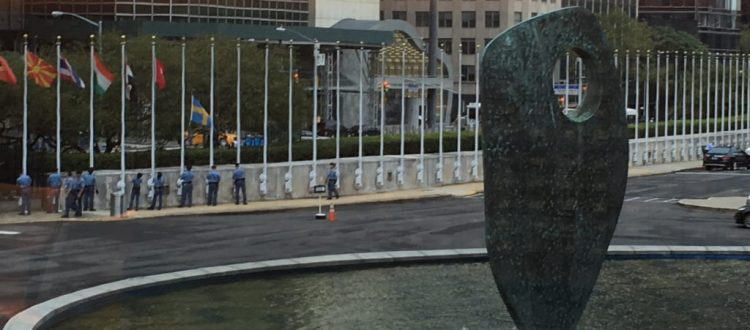Youth, peace and security – the new kid on the block
UN Security Council Resolution 2250 on Youth, Peace and Security, adopted in December 2015, requested the UN Secretary-General “to carry out a Progress Study on the youth’s positive contribution to peace processes and conflict resolution.” The Progress Study was conducted as an independent, evidence-based and participatory research process, giving 4,230 young people across the world the opportunity to contribute to the discussions on the main peace and security issues facing their communities.
| Suggested Reading | Conflict Background | GCCT |
Since the United Nations Secretary General introduced his Plan of Action to prevent violent extremism (PVE), in 2016, numerous UN entities, from UNESCO to UNDP, have gone into overdrive to produce countless reports and develop programs on PVE to demonstrate their dedication to this “new agenda”. Regional organizations, such as the European Union and the African Union, all showed their political and financial commitments to this arguably new agenda. Numerous national governments have already developed national action plans on the prevention of violent extremism. Even key non-governmental peacebuilding organizations who work with or are run by young people, welcomed this new policy agenda and started to work in the field of PVE as well. While all these actors work for the PVE policy agenda, almost all of them also endorse the Youth, Peace and Security agenda (YPS), born through the adoption of UN Security Council Resolution (UNSCR) 2250 in 2015.
This is not a surprise considering that both the PVE and the YPS emphasize the importance of youth empowerment. At the same time, we need to see the qualitative differences in the way these two fields approach youth empowerment. While the PVE agenda supports empowerment programs where young people to take a more active role in the prevention of violent extremism, the YPS agenda promotes youth empowerment in the context of fostering social inclusion and increasing youth participation in peacebuilding.

The PVE agenda’s positive approach to youth empowerment is an opportunity to build constructive relationships between the powerful actors working in the security sector and the organizations working in youth development, including organizations led by young people themselves. However, since the PVE field is born out of counter-terrorism, some caution is necessary in the way it approaches youth empowerment.The actors working in the PVE are not united in their understanding and application of youth empowerment programs. While organizations working in education, economic, social and cultural development fields have extensive experience in developing and delivering youth empowerment programs, actors working in the security sector are noticeably new to youth empowerment and challenged by its implications. In fact, the concept of ‘power’ is rarely if ever considered something to be shared with ‘others’ among security sector actors.
There is a danger that youth empowerment programs in the security sector may merely function as a tool to strengthen, support, supplement hard-fisted law enforcement approaches. As ‘The Missing Peace: Independent Progress Study on YPS’ report alerts, such law enforcement approaches are simply not cost-effective in terms of diverting funds away from social services necessary to tackle the drivers of violence. These hard-fisted law enforcement approaches are also counter-productive since they further alienate young people and diminish their trust in their governments and the multilateral system. Lastly, any misuse of youth empowerment programs by military, police or counter-terrorism forces can easily turn into “spaces of social control and containment, seeking to inculcate in their young participants a narrowly prescribed set of legitimate practices and viewpoints, and offer little to no real opportunity to effect radical or significant social or political change” as Sukarieh and Tannock argue.
The emphasis on youth empowerment in the field of PVE is possibly an asset, but might easily pose a risk to the YPS field. In this context, it is crucial that organizations working in the economic, social and cultural development fields are loud and clear in explaining the function of youth empowerment programs to actors working in the security sector. It is also necessary that security sector actors are willing to build equal partnership with actors who have experience in the youth empowerment field. Meaningful and credible partnerships in the context of youth empowerment may be the best way to reform and transform the security sector field. As the new kids on the block, the YPS agenda and youth-led organizations may seem marginal but offer new and exciting avenues for the transformation of the outdated structures, institutions, policies and minds in the entire security field.
Ali Altiok is a youth advocate with UNOY Peacebuilders and a research consultant at the Progress Study Secretariat. To access the Progress Study, go to www.youth4peace.info/ProgressStudy. The Progress Study will be officially presented to UN member states in an Open Debate of the UN Security Council on 23 April 2018.
The United Network of Young Peacebuilders (UNOY Peacebuilders) is a member of the Global Coalition for Conflict Transformation, comprised of organizations committed to upholding and implementing the Principles of Conflict Transformation.
This piece was originally published on the UNOY blog and is available by clicking here. The views expressed in this piece do not necessarily reflect those of TransConflict.



















